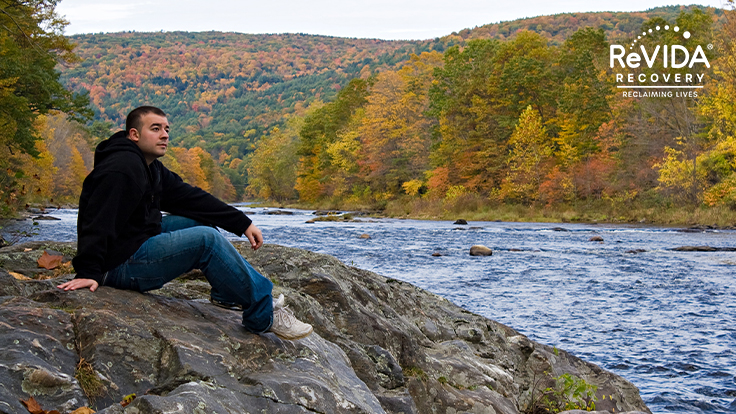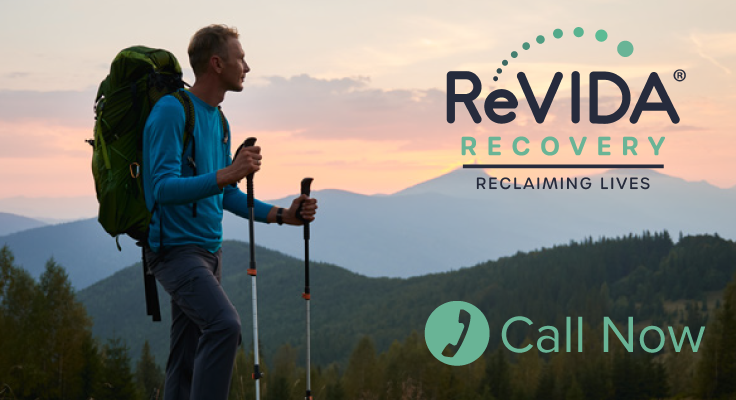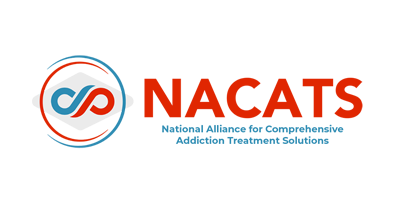
Your dad has always worked hard to provide for your family. With five brothers and sisters, your mom stayed home to keep the house and your siblings in line. He didn’t mind his role, but you knew there had to be something going on for him to handle all the stress.
As you got older, you asked your mom how your dad was getting by. You saw the wear on his body, but he never seemed to let it bother him. She looks at you surprised, but decides since you are 18 now, you can know the truth. Your father has been snorting crushed codeine pills for years, self-medicating to keep the family afloat. Until one day he comes home falling through the door, seeming to be choking. Your mom panics and calls for help. You overhear her say she assumes an overdose of codeine, with so much sureness in her voice you have to wonder if this has happened before. She did a good job shielding you from his addiction.
In 2022, 12 residents of Knox and Anderson Counties died of a codeine overdose. ReVIDA® Recovery works within our Appalachian communities to bring education and opioid use disorder treatment to all. We offer medication-assisted treatment as an option because we have seen the success it has provided for many to find their recovery. Let’s explore more on codeine overdose, and what you need to know to keep a loved one safe.
Table of Contents
Codeine Overdose: What Causes It?
Codeine is an opioid, often used in treating pain or severe cough in a medical setting. It is about 1/10 as potent as morphine, making it one of the lowest-potent opioids. However, codeine can be used recreationally and illicitly. This is where a codeine overdose can occur. Illicit codeine use is not regulated, and the person is free to use as little or as much as they want. When too much codeine is used, the brain and body become overwhelmed. The central nervous system slows, resulting in potentially fatal consequences.
Early Warning Signs a Codeine Overdose is Near
There are some early signs that a codeine overdose may be starting. A common side effect of opioid use is nodding in and out of consciousness. While experiencing this symptom does not always indicate an overdose, it can be a worrisome sign. This is especially true if the person becomes more difficult to wake. Their pulse will feel weakened and their heart will begin to race. These early signs are indicators that it is time to seek help.

Codeine Overdose: The Tell-Tale Signs & Symptoms
As a codeine overdose progresses, some signs and symptoms become more prominent. One of the most common signs is a gurgling or choking sound. This is a common sound as the person begins to aspirate on their own saliva or if they have vomited. The fluid begins to build up in the lungs, leading to choking and difficulty breathing. Other symptoms of a codeine overdose include:
- Blue tint to the lips and fingernails
- Stomach cramps with nausea and possibly vomiting
- Cold and clammy skin
- Loss of consciousness
- Slowed, shallow breathing
Imminent Dangers Of An Overdose
The imminent dangers of a codeine overdose involve life or death. The central nervous system is responsible for breathing, and when it is slowed too much, breathing can stop. The person is no longer bringing oxygen into the body, leading to total system failure. This can happen faster than in someone who does not use codeine due to hypercarbia. This condition causes an increase of carbon dioxide in the bloodstream and is common with opioid use. Combined with a lack of oxygen, hypercarbia can cause the person to experience life-long complications.
What to Do During An Overdose
A codeine overdose is a medical emergency and should be treated as such. Be sure to call for help immediately. Stay with the person and get them to a quiet place if possible. Try to keep them upright and awake, but if they do lose consciousness lay them on their side. If available, administer Narcan® (naloxone). This medication works as an opioid antagonist and will reverse the effects of a codeine overdose. When help arrives, give as much information as you can, including all substances taken. This will allow them to treat the person accordingly.

Who Is More Likely to Experience a Codeine Overdose?
Those who are opioid-naïve and take a dose of codeine stronger than what is regulated are more likely to experience an overdose. Codeine is closely monitored by doctors, pharmacists, and government organizations like the Food and Drug Administration (FDA). This allows them to recommend dosages based on each individual’s personal needs and history. Illicit codeine has no directions for dose and strength, making it more likely to cause an overdose in those who use it.
Risk Factors For Experiencing a Codeine Overdose
There are other risk factors that can put people at risk of experiencing a codeine overdose. Some of the most common include:
- Having a close family member who regularly uses codeine or other substances
- Spending time with friends who use codeine
- Having an opioid use disorder or a previous substance use disorder
- Engaging in reckless behaviors
- Experiencing trauma that has not been resolved
- Going through withdrawal between doses
- Returning to use after detoxification
These risk factors do not automatically mean if the person uses codeine they will experience an overdose. These factors increase the risk of developing dependence, which can result in an overdose. Withdrawal is also a large risk factor for experiencing an overdose. Those who refrain from use for as little as 8 hours will start to experience uncomfortable withdrawal symptoms. They may overcompensate the amount of codeine they take, resulting in an overdose.
A return to use can also prove to be a factor for a codeine overdose. If the person has stopped taking codeine and the body has detoxed, the system essentially resets itself. The person may feel they can use the same amount they had in the past when the reality is the brain will be overwhelmed. This can result in an accidental codeine overdose.
How Knowing the Signs of a Codeine Overdose Helps
Whether you or someone you love is using codeine, or you want to be able to help a stranger when you see an overdose, knowing the signs of a codeine overdose can prove helpful. Narcan® (naloxone) is available over-the-counter and is even available for free through local needle exchange and overdose prevention programs. Knowing the tell-tale signs of a codeine overdose and being prepared with Narcan® (naloxone) will allow you to provide assistance that could save someone’s life.
There are laws in Tennessee that protect bystanders who in good faith administer an opioid antagonist in a suspected overdose situation. The law states that so long as the person does not act with carelessness or try to cause intentional harm, they will not held legally responsible should something happen.
Treatment Options for Codeine Use Disorder in Appalachia
Witnessing a loved one experiencing a codeine overdose or experiencing one yourself can be a frightening experience. Help is available to prevent another one from happening, and caring professionals are ready to direct you to the path of recovery. Codeine addiction treatment is the first step to a new way of life. Through guided therapy, you will develop healthy coping skills and learn the root causes of your addiction. For some, medication-assisted treatment may be a part of their recovery journey. Finding a facility that works with you and helps you achieve your goals will set you up for the greatest start to a beautiful life in recovery.
Living with a codeine use disorder and worrying about the risk of an overdose is no way to get through life. ReVIDA® Recovery is well-versed in all opioid use disorders, including codeine. Our team of dedicated professionals is here and ready to get you started in treatment as soon as possible. Our facilities throughout Tennessee and Virginia offer same-day appointments, so there is nothing holding you back from beginning the journey now. Call us today at 423-631-0432 to learn more about our program offerings.
Reclaim your life.










